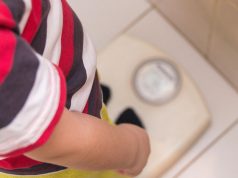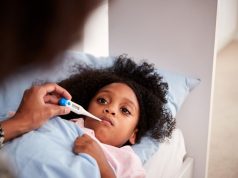The Pediatric Academic Societies Annual Meeting
The annual meeting of the Pediatric Academic Societies was held from April 30 to May 3 in Baltimore and attracted more than 7,500 participants from around the world, including pediatricians and other allied health professionals. The conference highlighted recent advances in pediatric health care, with scientific papers presented on a variety of topics such as asthma, opioid exposure, and infant nutrition.
In one study, Mary Beth Howard, M.D., of Boston Children’s Hospital, and colleagues found that more parental time spent at the infant’s bedside during hospitalization for neonatal abstinence syndrome (NAS) is associated with less severe NAS symptoms and shorter hospitalizations.
“Providers should continue to encourage parental engagement in care during the infant’s inpatient stay for NAS in order to improve outcome,” Howard said. “These results demonstrate that non-pharmacologic interventions have a key role in treating opioid-exposed infants and lessening the severity of NAS. Encouraging and supporting mothers with substance abuse disorders to be involved in their infant’s care while they are being treated for withdrawal symptoms should be a priority of providers caring for opioid-exposed newborns.”
In another study, Yolande Mfondoum Pengetnze, M.D., of the Parkland Center for Clinical Innovation in Dallas, and colleagues found that when tweets that specifically mention asthma increase in a given week, asthma emergency department visits or hospitalizations significantly increase during the following week in a very measurable and predictable manner.
“Twitter data can be monitored to create a ‘Twitter Asthma Pulse’ to predict, in real time, changes in asthma emergency department visits and hospitalizations in the community,” Pengetnze said. “Clinical providers, hospitals, and public health departments could use the Twitter Asthma Pulse to trigger interventions. For example, when the Twitter Asthma Pulse rises, doctors could send text messages to their patients to remind them to take their medications. Or, a department of health could send mass notifications to management to deal with the predicted rise in emergency department visits or hospitalizations with increased staffing.”
Ashley Merianos, Ph.D., of the University of Cincinnati, and colleagues found that tobacco smoke exposure in the home contributes to increased use of pediatric health care services.
“We found that children who were smoke-exposed had higher rates of medical care visits than children who were not exposed. Children who are smoke-exposed potentially have higher rates of illnesses, and their caregivers were concerned enough to seek health care for them,” Merianos said. “A substantial proportion of children who are smoke-exposed seek care or health advice at an emergency department, which presents an underutilized opportunity to identify caregivers who smoke and inform them about the dangers of tobacco smoke exposure for children.”
Tobacco smoke exposure is a public health problem that needs to be addressed, according to Merianos. Eliminating tobacco smoke exposure among children is the key to decreasing related health care visits and associated costs.
“Our results provide additional evidence to support the universal screening of children for tobacco smoke exposure in all health care settings, especially in the pediatric emergency department,” Merianos said. “We need to use these opportune visits to intervene with caregivers to reduce their child’s tobacco smoke exposure.”
Anna-Barbara Moscicki, M.D., of the University of California, Los Angeles, School of Medicine, and colleagues found that stress and poor coping skills (such as drinking alcohol or using substances) are associated with persistence of human papillomavirus (HPV).
“Persistence of HPV is a silent clinical disease which can lead to cervical cancer. Hence, factors that affect or influence HPV persistence need to be addressed. This might be stress reduction or dealing with poor coping skills such as drinking alcohol or using substances to relieve stress. It is likely that stress reduces the appropriate immune response to HPV, leading to persistence of the infection. In addition, these poor coping skills may additionally affect HPV persistence by causing additional immune dysfunction or may directly affect carcinogenisis,” Moscicki said. “Women should be counseled on decreasing stress (through mindfulness, yoga, or exercise) and to not use substances to assist in perceived stress reduction.”
PAS: Aerial Pesticide Spraying Tied to Higher Autism Rates
MONDAY, May 2, 2016 (HealthDay News) — Children living in an area of New York state that uses aerial pesticides to control mosquitoes have a higher rate of autism than children in neighboring areas, according to findings presented at the annual meeting of the Pediatric Academic Societies, held from April 30 to May 3 in Baltimore.
Copyright © 2016 HealthDay. All rights reserved.







